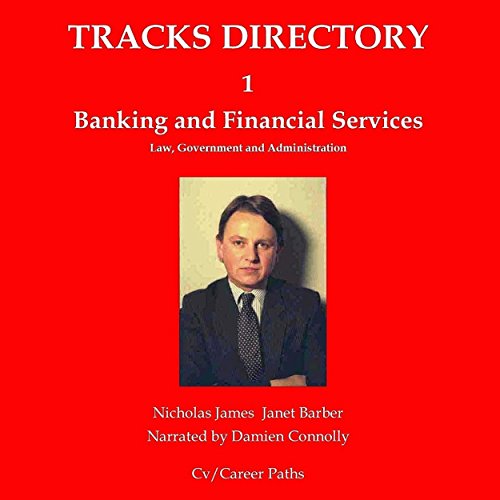
Tracks Directory 1: Financial Services
Law, Government & Administration
Falha ao colocar no Carrinho.
Falha ao adicionar à Lista de Desejos.
Falha ao remover da Lista de Desejos
Falha ao adicionar à Biblioteca
Falha ao seguir podcast
Falha ao parar de seguir podcast
Assine e ganhe 30% de desconto neste título
Compre agora por R$ 10,99
-
Narrado por:
-
Damien Connolly
Sobre este título
First published as Tracks: Plan of the Professions in 1997, the 15th revised and updated edition is published in 2017. It gives information for over 150 professions, which include pathways in the banking and financial services, catering and hospitality, construction, education, health care, land and sea work, law, government and administration, leisure and tourism, manufacturing crafts, marketing, media, services, and sports and fitness.
Qualifications are listed from GCSE and NVQ to degree level. There are work descriptions and pay scales with advice and starter tips from chartered institutes and professionals in each area.
You may possibly have thought, "Being an accountant is so boring, and anyway, I couldn't cope with all those figures and balance sheets." The fact is, you don't have to be an Einstein to be a success in it and the opportunities are enormous. A career in finance today comes under several headings. Accountancy, keeping the books and balancing accounts, is probably the most traditional area. There are different branches of accountancy in cost accounting, management accounting, payroll, revenues and benefits, and work opportunities for it in the commercial and industrial sectors; in the NHS and local government and in the voluntary sector. In a business of any size, there is also going to be an auditing requirement, checking the records and figures to make sure they are accurate and are a fair representation of the financial situation. Insurance, also a finance career, is about assessing risk and hedging against it, in every sphere. It includes underwriting ships and aeroplanes and their passenger liabilities as well as working out personal insurance from motor cars to flood risks. Do you have to have a lot of qualifications to get into insurance?
©1988, 2012, 2016 Cv Publications (P)2017 Cv Publications

